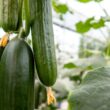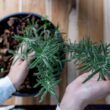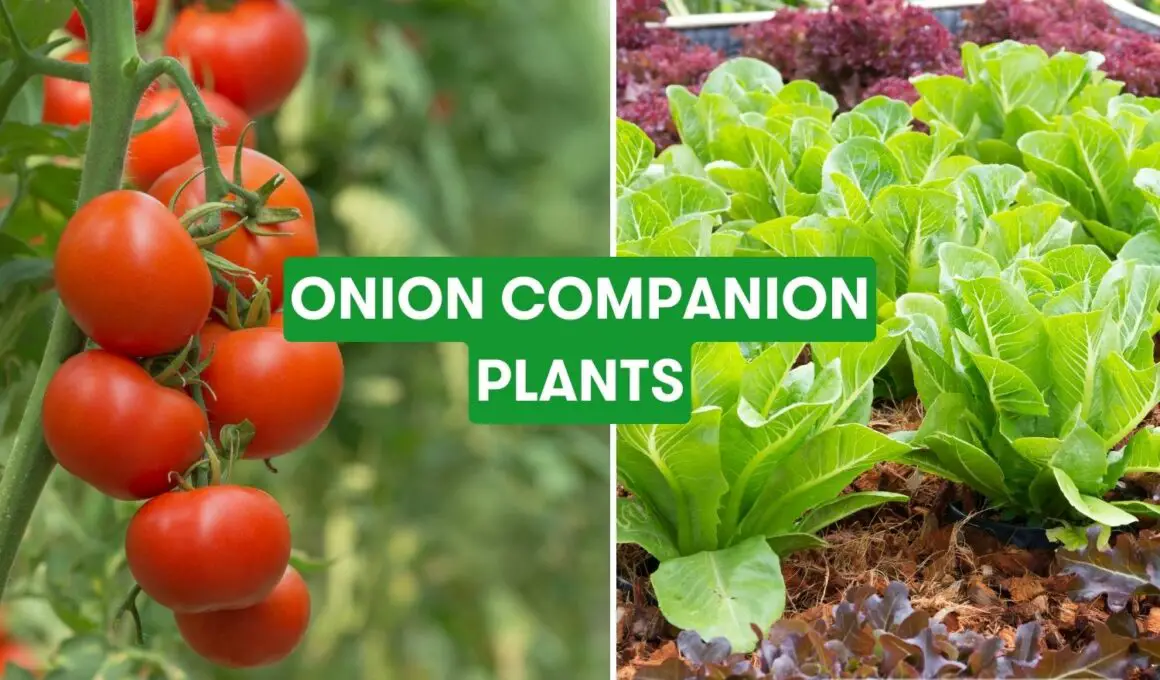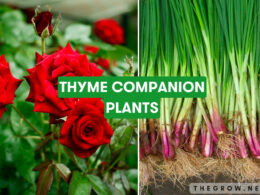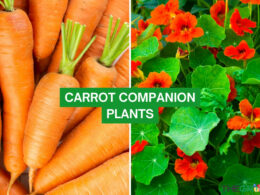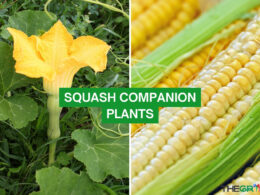In This Article Show
If there’s one thing I’ve learned from over a decade of tending to my green sanctuary, it’s that plants, much like people, thrive best in the right company. Onions, a staple in many gardens (and kitchens), are no different. Over my 13 years of hands-on gardening experience, I’ve seen firsthand the benefits of pairing onions with the right neighbors.
Companion planting is more than just an age-old gardening tradition; it’s a practical approach to protect, nurture, and enhance the growth of our beloved plants. And for onions, this can mean fewer pests, better growth, and even improved flavors. But with the myriad of plants out there, which ones truly make the best neighbors for onions?
That’s what we’re diving into today. Whether you’re a seasoned gardener or just starting, let’s explore together the world of onions and their best plant buddies.
Benefits of Companion Planting for Onions
1. Pest Control
Every gardener, novice or veteran, knows the frustration of seeing a once-thriving plant under siege by pesky bugs. Onions have their fair share of adversaries, but, guess what? Some plants act like onion bodyguards.
By releasing certain fragrances or drawing in beneficial insects, these companion plants can keep those unwanted pests at bay. The result? Onions that grow uninterrupted by nuisances like onion flies or thrips.
2. Improved Growth
Nature truly is fascinating. Some plants, when grown side by side, just seem to boost each other’s spirits. It’s as if they’re cheering each other on. In the case of onions, certain plants can help them achieve better root development and even lead to larger bulbs. It’s all about creating a supportive environment where each plant can thrive.
Get Gardening For Beginners
Our new EBOOK shows newcomers and green thumbs alike a step by step guide to growing the garden of their dreams.
3. Soil Enrichment
Good soil is the lifeblood of any garden. Certain companion plants, with their unique root systems or nutrient needs, can complement onions by either drawing different nutrients or releasing beneficial ones into the soil. This ensures that the ground doesn’t get depleted and remains rich and nourishing for the onions.
4. Disease Resistance
A diverse garden isn’t just pleasing to the eye; it’s a stronghold against diseases. By diversifying the plants around your onions, you’re reducing the risk of disease spread. Some companions can even actively prevent specific diseases that onions are prone to, giving you a healthier, more resilient garden.
List of Best Companion Plants for Onions
Companion planting is like matchmaking for plants. When done right, it creates a harmonious garden where plants support and uplift each other. As we delve deeper into the specifics of which plants gel well with onions, think of it as setting up your onions on a series of successful blind dates!
1. Carrots
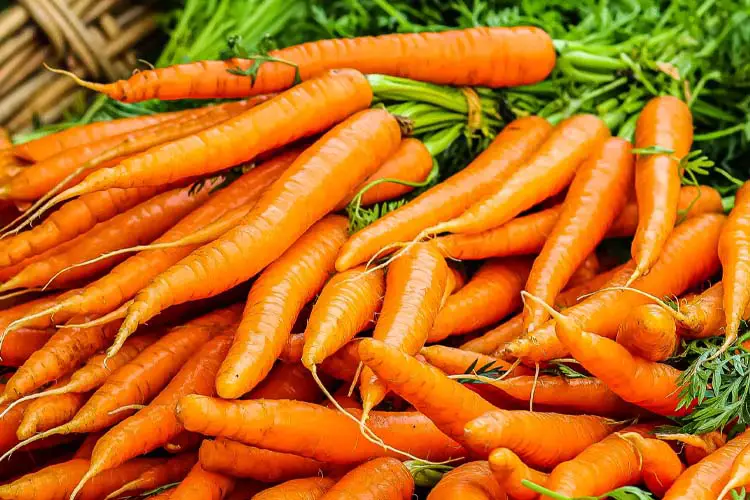
Ah, the classic pairing! If onions and carrots had social media, they’d be tagged as #Besties. These two share more than just soup recipes; they thrive side by side in the garden.
Carrots attract beneficial insects that keep onion pests at bay. Plus, their root systems work at different soil depths, ensuring they don’t compete but rather support each other’s growth. It’s a garden win-win.
2. Tomatoes

Surprised? You shouldn’t be! While tomatoes and onions make a delightful duo in salsas, they also partner up in the garden. Tomatoes can repel onion flies, one of the primary pests for our bulbous friends.
So, by having tomatoes around, you’re not just prepping for a tasty meal; you’re also setting up a protective barrier for your onions.
Get Gardening For Beginners
Our new EBOOK shows newcomers and green thumbs alike a step by step guide to growing the garden of their dreams.
3. Chamomile
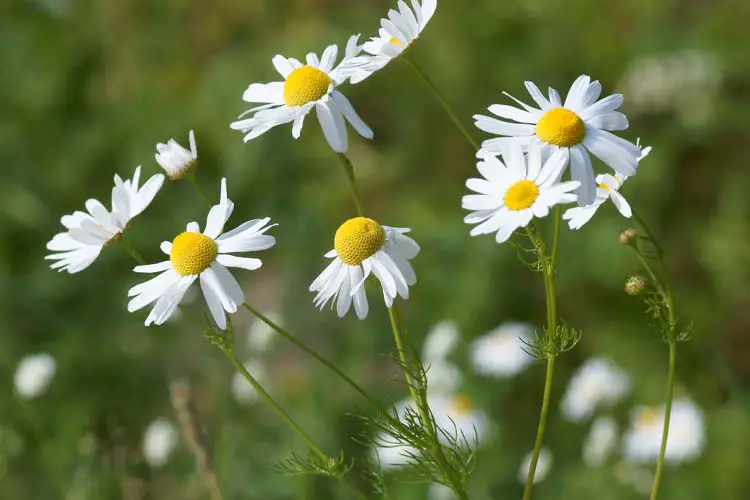
Beyond its soothing tea benefits, chamomile is a gem in the garden. Planting chamomile alongside onions can enhance the flavor of your onion bulbs. Think of it as a natural flavor booster without any additives. Additionally, chamomile attracts beneficial insects that can help in keeping those pesky pests away from the onions.
4. Beets

Here’s another underground partnership that works wonders. Beets and onions have a harmonious relationship beneath the soil. Their roots grow comfortably without competing for nutrients, ensuring both can grow to their full potential. Above the ground, they provide a canopy that can help suppress weed growth, making your gardening duties a tad bit easier.
5. Lettuce

Lettuce, with its shallow roots and broad leaves, acts as a natural mulch for onions. As it spreads, lettuce can help retain soil moisture, ensuring the onions remain hydrated, especially during those scorching summer days. Plus, their differing nutrient needs mean they happily coexist without robbing each other of essential minerals.
6. Cabbage
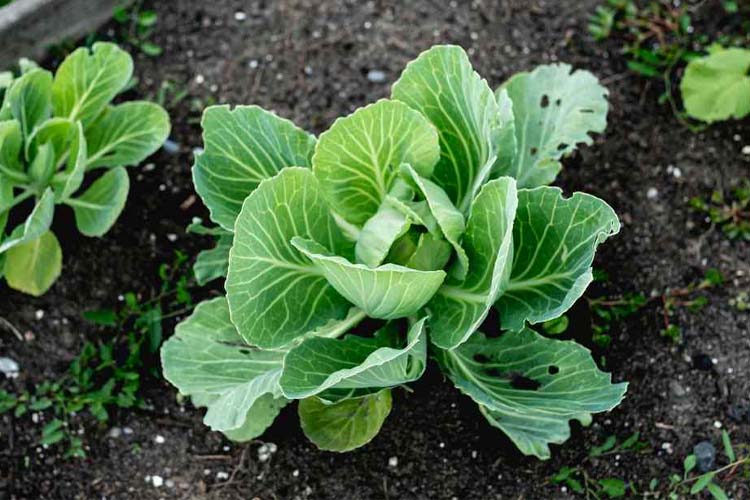
Onions and cabbages are like the dynamic duo of the vegetable world. Onions help repel many of the pests that love munching on cabbage, such as aphids and cabbage loopers. This pairing not only keeps your cabbages safe but also ensures a bountiful harvest.
7. Strawberries
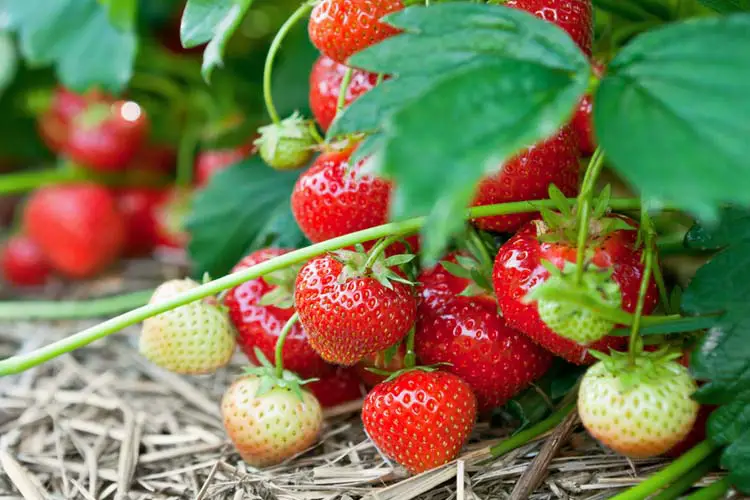
It might sound unusual, but strawberries and onions get along quite well. Strawberries can deter nematodes, tiny soil-dwelling worms that can be harmful to onions. On the other hand, onions deter some common pests that target strawberries, creating a reciprocal protective relationship.
8. Leeks

Being close relatives, it’s no surprise that leeks and onions make good garden companions. They both have similar soil and watering needs, making garden maintenance easier. Plus, leeks can help deter some pests that might be attracted to onions.
9. Marigold

Marigolds aren’t just about the beautiful splash of color they add to your garden. These flowers release a strong scent that repels various pests, including those that target onions. Furthermore, marigolds are known to deter nematodes, ensuring your onion bulbs remain healthy and robust.
10. Parsley
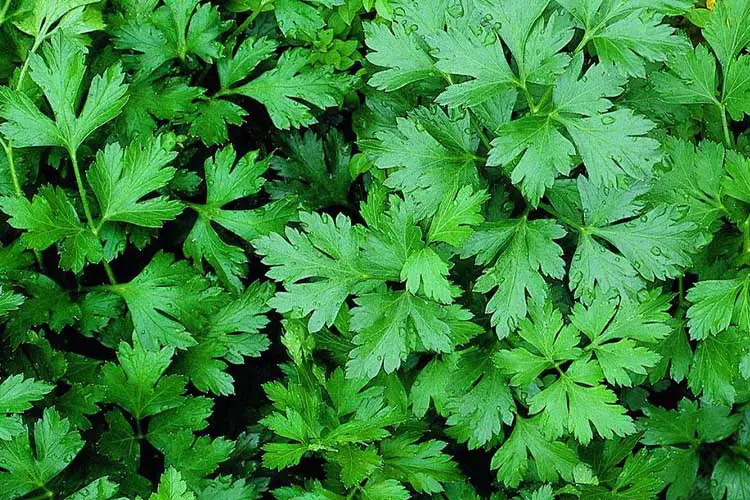
This fragrant herb, often seen as a garnish, plays a vital role in the garden alongside onions. Parsley attracts beneficial insects, which can help control pests that might bother onion plants. Additionally, its dense growth can help suppress weeds, making it a handy partner for onions.
Each of these companions brings something unique to the table, or should I say garden bed? Whether it’s mutual protection, flavor enhancement, or growth support, these plants have proven time and time again that they’re onion’s best friends in the garden.
As you plan your next planting, consider introducing your onions to some of these fantastic companions.
Plants to Avoid Planting Near Onions
Just as some plants can be fantastic companions for onions, others may not be as compatible. Understanding these relationships is just as crucial to ensure a thriving garden. Here’s a list of plants that might not be the best neighbors for your onions:
1. Beans And Peas
Legumes and onions don’t quite see eye-to-eye. Both beans and peas can inhibit the growth of onions. The reason? They compete for essential nutrients in the soil, and their root exudates might not be the most conducive for onion growth. It’s best to give these two some space in the garden.
2. Sage
This aromatic herb, although a delight in many dishes, isn’t the best companion for onions. Sage has been observed to deter the growth of onion plants. While the exact reason isn’t entirely clear, seasoned gardeners often keep sage away from their onion patches.
3. Asparagus
It’s a bit of a tricky relationship between asparagus and onions. While onions can deter pests that attack asparagus, the reverse isn’t as beneficial. Asparagus might inhibit the growth of onion bulbs, so it’s wise to plant them apart.
4. Broccoli and Cauliflower
Both broccoli and cauliflower are part of the Brassica family and have specific nutrient needs that can clash with those of onions. They might compete for the same nutrients, leading to subpar growth for both parties. Plus, the dense foliage of these veggies can overshadow and stifle the onions.
5. Sunflowers
These towering beauties, while providing a lovely visual backdrop, can be a bit domineering in the garden. Sunflowers have extensive root systems that can draw away essential nutrients from the soil, leaving onions struggling. Moreover, their tall stature can shade onion plants, denying them the sunlight they need.
Remember, gardening is a delicate balance. It’s about understanding the needs and preferences of each plant and ensuring they have an environment where they can flourish. By being aware of these incompatible pairings, you can make informed decisions and pave the way for a garden that’s both bountiful and harmonious.
Tips for Implementing Onion Companion Planting
Companion planting with onions is more than just placing plants side by side and hoping for the best. It’s about strategic choices, understanding plant dynamics, and making adjustments based on observations. Here are some tips I’ve gathered over the years to make your onion companion planting a resounding success:
1. Space Appropriately
Remember, plants need room to breathe and grow. Ensure each plant, be it onion or its companion, has enough space to spread its roots and leaves. Overcrowding can lead to competition for nutrients and sunlight, potentially negating the benefits of companion planting.
2. Rotate Crops
Even the best of friendships need a break! Avoid planting onions (and their companions) in the same spot year after year. Rotation helps prevent the buildup of soil-borne diseases and pests. Plus, it gives the soil a chance to rejuvenate and replenish its nutrients.
3. Observe and Adjust
No two gardens are the same. What works wonders in one patch of earth might not in another. Keep a keen eye on your plants. Notice how they interact, how they grow, and how they respond to different companions. Don’t hesitate to adjust your placements or pairings based on your observations.
4. Mulch Around Your Plants
Mulching can be a game-changer. It helps in retaining soil moisture, suppressing weeds, and regulating soil temperature. A layer of organic mulch around your onions and their companions can enhance their growth and health.
5. Water Wisely
Different plants have varied watering needs. Ensure that the companions you choose for your onions have similar moisture requirements. This way, you won’t overwater one while under-watering the other. Remember, it’s all about balance.
6. Research Before Planting
While I’ve provided a list of great companions and ones to avoid, always do a bit of extra research, especially if introducing a new plant to your garden. Dive deep into its needs, preferences, and potential interactions with onions.
Conclusion
Implementing companion planting with onions can seem like a meticulous task, but the rewards, from healthier plants to flavorful yields, are well worth the effort. Remember, it’s about understanding each plant’s needs and creating a harmonious garden environment where every plant can thrive.

